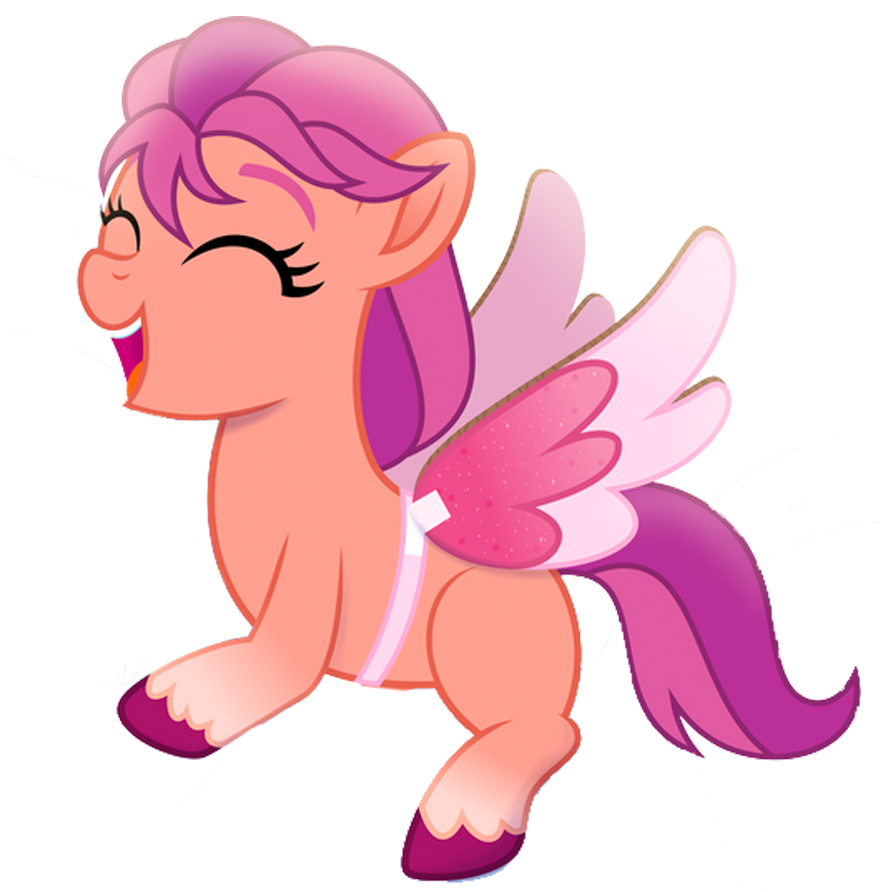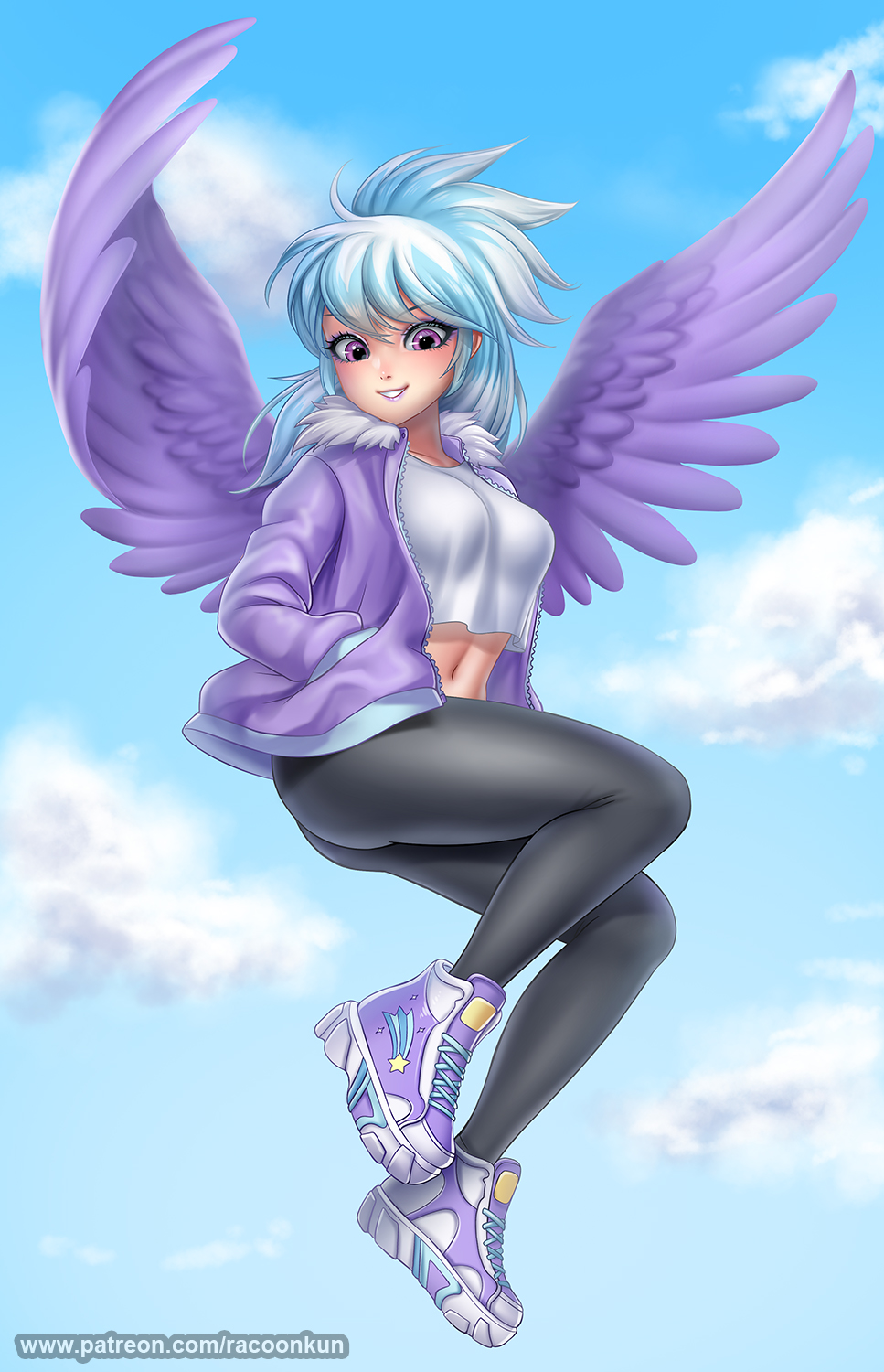-
Posts
1,742 -
Joined
-
Last visited
Content Type
Profiles
Forums
Character Archive
Frequently Asked Questions
Equestrian Empire Character Archive
Golden Oaks Memorial Library
Pony Roleplay Characters
Events
Blogs
Posts posted by Concerned Bystander
-
-
Granted, you can now make an exact duplicate of any form of food. However, the original food is destroyed in the process.
I wish I had more storage space in this room,
-
 1
1
-
 1
1
-
-
Banned for asking someone if they're banned instead of telling them.
-
 2
2
-
-
Granted, you have a brand-new shiny heart. Unfortunately the installation instructions are in some form of Elvish that you can't read.
I wish it wasn't raining.
-
 1
1
-
-
7 hours ago, Samurai Equine said:
But how can they write that if English is not their first language?
Being able to write things that aren't your first language is literally how translation works (yes, I know that not all authors will be able to translate their own work).
7 hours ago, Samurai Equine said:I've seen authors try this, but despite their best efforts to either learn or rely on a worthwhile translator, translation and grammar mistakes happen.
This is kind of the point I was trying to make originally. I don't know Mandarin, so if I write a paragraph in English and ask someone to translate it into Mandarin I am still relying on the translator to tell me in English, what they have translated that paragraph into in Mandarin, so what I am approving at that point is a translation of a translation, and there is going to be some variation because English to Mandarin is never going to be a perfect word-for-word translation. At some point I may say "that's good enough", but because I'm not fluent in Mandarin I am never going to understand exactly what my paragraph has been translated into without someone else translating it back into English for me, and even then it is only going to be that person's interpretation, translated in the way that they think most fits. If I ask three different people I will probably get three subtly different versions of my own paragraph back. Any (or indeed, every) one of those three versions may adequately convey my original intent, but none of them will be exactly what I wrote in English in the first instance.
Furthermore, the above example is based on the subject being a relatively simple paragraph of text. However, If the text in question was a poem, for example, then it might be necessary to make even greater changes to the language if preserving the cadence and tempo of the poem is the desired result. The same would apply to a song, maybe even more so, where the translated lyrics have to be made to fit the music.
The bottom line is that even if I give a translation my approval it absolutely does not mean that the translation is one hundred percent perfect, it means that I consider what I have been told it says to be close enough.
-
On 2024-03-13 at 8:18 AM, Samurai Equine said:
However, people always forget that in most instances, these changes and translation choices are approved by the original authors and creators.
You might not like a sign being changed since it messes with the art, but if that's a change the creator WANTED to make for international audiences, then what's the problem?
I'm not trying to say that translation will always result in an inferior product, but whether or not the creator approves of the changes there will always be a compromise in translation. If the Japanese author's original intent was for the sign to say "abandon hope all ye who enter here" then he (or she) would have written it in English in the first instance.
-
 1
1
-
-
There is good and bad points to internationalisation of cultural material. Ultimately, any alteration of the media from its original form is going to be a change, however slight, from the creator's intent for that work.
Of course one of the biggest topics currently is people using localisation to insert their own political views into other people's work. I'm sure we all understand that sometimes changes have to be made to dialogue in order to try and keep the synchronisation between speech and animation as close as possible, but when doing so great care should be taken to avoid the use of divisive or contentious language, at least where the original dialogue is not already inclined towards those traits.
The use of pictures to replace text as seen in examples above can be a very good way to get the same idea across in a way that can be understood not only by the foreign audience but is still recognisable by the original audience as well. A downside to this might be that in instances where a sign on a building for example is a play on words, that will be lost when replacing those words with a picture, but then again, the audience that the translation is for is unlikely to pick up on the joke anyway, and even if translated that joke may not carry over into the new language.
Additionally, I'm sure most people that live in the US or Europe have got used to the idea of manga being 'backwards' relative to books from our own countries. Not too many years ago this wasn't the case, and when manga was being made for western consumption the artwork was flipped to a mirror image of the original so that the book could be printed with the spine on the left hand side relative to the front cover. This eventually caused manga artists to complain that their work was being tampered with and this led eventually to manga being released in the west in its original Japanese format, albeit with translated text. It may seem like a fairly trivial thing on the surface, and you may think that format and content are separate issues but the mirror imaging would cause right handed characters to become left handed (and vice versa) and result in text or logos on clothing or signs (for example) being back-to-front and reduced to gibberish among other issues.
We could also discuss some of the infamous acts carried out by the likes of Disney in order to make their films palatable to international markets. A prime example of this was the controversy surrounding a poster for The Last Jedi, in which John Boyega was in a very prominent position for the western version of the poster, but was shrunk and moved into the background for the Chinese version. There was also a scene in the film in which two female characters kissed, put there so that Disney could virtue-signal about how inclusive they are, but also strategically placed so that the scene could be easily edited out for China and the Middle East.
The bottom line is that if we want to consume material from foreign countries without having to learn every language they are made in then we just have to accept the imperfections that are an inevitable result of translating that media into a language that we can understand.
-
 2
2
-
-
Banned because nobody wants to see a dragon without its scales, licensed or otherwise.
-
 1
1
-
 1
1
-
-
Cloud Chaser looking fine fine fine as a human.

By RacoonKun on Deviantart
-
 1
1
-
-
Banned because this entire arc is pointless.
-
 2
2
-
-
Banned for having more points than necessary.
-
 2
2
-
-
Banned for not pointing out the rules.
-
 2
2
-
-
Ready for the Grand Galloping Gala.

Art by Starcollider, found on Derpibooru
-
 2
2
-
-
Banned for trying to constrain the dark lord with rules.
-
 1
1
-
-
It seems nopony has yet created a fan club for Cloudchaser. This outrageous injustice cannot be allowed to persist, and so courtesy of Barrfind on Deviantart I would like to present this gorgeous and extremely underrated pony with one of the best manes in Cloudsdale.

-
 6
6
-
-
Although I have seen the film of 'The Neverending Story' many times I have never read the book by Michael Ende, and I felt it time to correct that oversight. I wouldn't have been surprised to find some differences between the book and the film, as it is quite common for the book to be trimmed down somewhat to make a film short enough for the cinema, but I had no idea just how much had been cut out. I'm currently about half way through the book and have passed the point in the story where the film ended. I know the film has two sequels, but I never thought that either of them would actually be continuing the story from the same book, although it seems now that that may indeed be the case.
-
Granted. Now nobody is permitted to travel more than fifty metres away from their home.
I wish the lid of my water hadn't broken when I accidentally knocked it off the shelf.
-
 1
1
-
-
Granted, but since the wish was not something you already had the resulting paradox unravels the fabric of the universe leaving you simultaneously with nothing and everything.
I wish these two cats would just get along instead of hissing and swiping at each other.
-
Granted. You travel back in time, but Australopithecus haven't developed humour yet so the joke is wasted.
I wish my shower had a setting somewhere between too hot and too cold.
-
Granted. All humans have now been turned to stone.
I wish I wasn't made of stone.
-
 1
1
-
-
Granted. You are now the world's only 25 Michelin starred chef, but you don't have any utensils, pots, pans or a cooker.
I wish this milk bottle wasn't empty.
-
I have two going concurrently at the moment, 'Brave New World' by Aldous Huxley is one. I've read it before, but it's been a long time. One of the absolute classics of dystopian fiction, right up there with 1984, Soylent Green and A Clockwork Orange.
The other one is volume 10 of 'No Game No Life'.
-
Granted, a time machine accident in the future causes the ultimate pinnacle of toothbrushing technology to materialise in your bathroom. Unfortunately, the battery is flat and the necessary charger won't be invented for another two hundred years.
I wish this confounded TV would work.
-
Granted. You now own a fabulous Nyx plushie but you have no idea where on Earth it is.
I wish my room was mosquito-proof.
-
Best? Hard to say, as has already been mentioned every season has it's highlights. For me though, I'd have to pick season four, because of 'Hearts Strong as Horses', 'Let the Rainbow Remind You', and 'You'll Play Your Part'.
The fact that the last song on that list is the first of only a very few occasions where we get to hear Princess Luna sing basically justifies choosing season four by itself.



The recent purchases thread
in General Discussion
A 1/7 scale figure of Marin Kitagawa from My Dress-Up Darling.